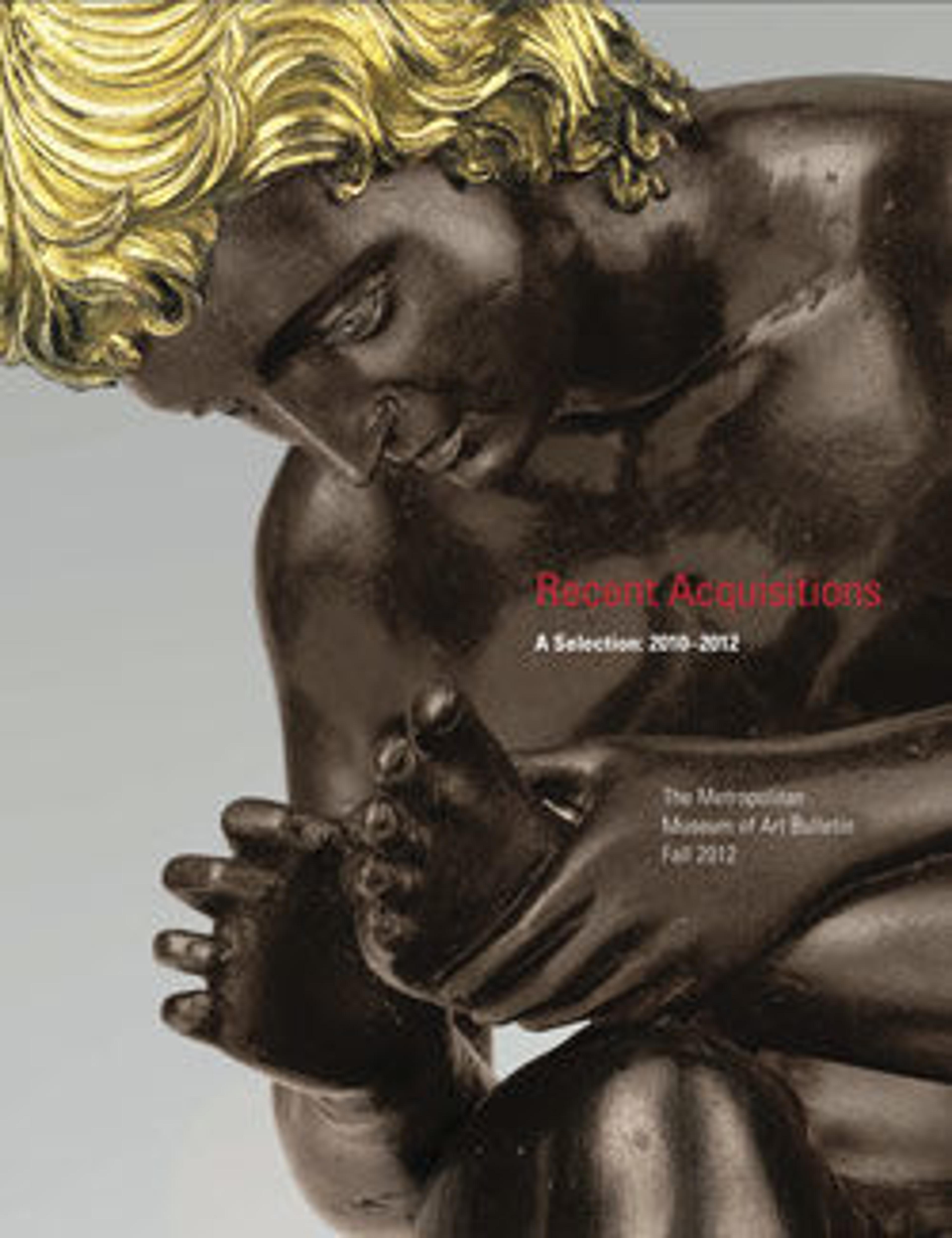Terracotta stamnos (jar)
Obverse, chariot setting out
Reverse, five hoplites (foot soldiers)
Representations of Attic symposia (drinking parties) occasionally include stamnoi, indicating that they contained wine; they typically had lids. The decoration here juxtaposes aspects of heroic and contemporary warfare. The chariot evokes a bygone era described in Homer's epics of the Trojan War. The two figures in Scythian dress and the footsoldiers on both sides represent contemporary warriors. The painter was particularly inventive with the shield devices.
Reverse, five hoplites (foot soldiers)
Representations of Attic symposia (drinking parties) occasionally include stamnoi, indicating that they contained wine; they typically had lids. The decoration here juxtaposes aspects of heroic and contemporary warfare. The chariot evokes a bygone era described in Homer's epics of the Trojan War. The two figures in Scythian dress and the footsoldiers on both sides represent contemporary warriors. The painter was particularly inventive with the shield devices.
Artwork Details
- Title: Terracotta stamnos (jar)
- Artist: Attributed to the Painter of London B 343
- Period: Archaic
- Date: late 6th century BCE
- Culture: Greek, Attic
- Medium: Terracotta; black-figure
- Dimensions: H. 13 3/8"
W. with handles 13 1/2" - Classification: Vases
- Credit Line: Gift of Patricia Stickney, 2011
- Object Number: 2011.233
- Curatorial Department: Greek and Roman Art
More Artwork
Research Resources
The Met provides unparalleled resources for research and welcomes an international community of students and scholars. The Met's Open Access API is where creators and researchers can connect to the The Met collection. Open Access data and public domain images are available for unrestricted commercial and noncommercial use without permission or fee.
To request images under copyright and other restrictions, please use this Image Request form.
Feedback
We continue to research and examine historical and cultural context for objects in The Met collection. If you have comments or questions about this object record, please contact us using the form below. The Museum looks forward to receiving your comments.
